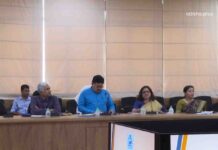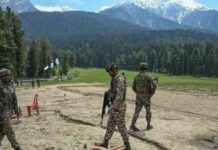Public Relations is a strategic communication process that builds trust and positive relationships between organizations and their public
OdishaPlus Bureau

PR has been quite central to the organizational as well as personal growth. Effective Public Relations is a must when it comes to imagining a positive societal environment. On the occasion of National Public Relations Day, in a conversation, Dr. Debilal Mishra, Assistant Professor of Department of Mass Communication at Ravenshaw University and a noted communication expert, shared his understanding and insights related to PR.
What is Public Relations?
Public Relations involves a strategic process of relationship-building based on communication, understanding, trust and acceptance. It also involves elements like positive intention and responsible behaviour.
Positive intention is central to earning public trust. We can’t accept something as long as we don’t trust them. Trust leads to acceptance; acceptance leads to relationship; and relationship facilitates persuasion which is the ultimate goal of any public relations activity.

Role of communication in PR
Communication is the lifeblood of PR. In fact, it’s more of a total communication strategy. Communication in PR is of a two-dimensional character: communicating with understanding and communicating for understanding. Here the communicator first understands the public behaviour through adequate research and then designs the communication effectively for the understanding of the public. Communication acts as the foundation for any relationship. Communication causes understanding; understanding creates trust; trust leads to acceptance; and acceptance fosters relationships. Therefore the nature of the communication can determine the nature of the relationship and vice-versa!
Ideal process of PR
Any PR activity must start with research: research about the public, their behavioural dimensions etc. Research leads to understanding and better management of the communication process. Edward Bernays in an interview in 1991 said “PR today is horrible. Any dope, any nitwit, any idiot can call himself or herself a Public Relations Practitioner.” He said he regarded PR as a social science.
Research leads to understanding. Understanding the public behaviour helps in the selection of appropriate tool or medium for communication. Once the medium is selected, the specific content can be created; since the content is always medium sensitive. The next step is communication with the goal of public understanding. Here the public must understand your communication and, more importantly, your positive intention. And then evaluation of the public attitude determines the communication effectiveness. Now the acronym can be RUMCCUE: Research, Understanding, Medium, Content, Communication, Understanding and Evaluation.
Major goals of PR
Ivy Lee, often considered to be the founder of the modern Public Relations, in his ‘Declaration of Principles’ published in 1905, states that the public should receive ‘prompt and accurate information concerning subjects which it is of value and interest to the public to know about,’ concerning businesses and public institutions.
Edward Bernays (2013), another founding figure, wrote: “The three main elements of PR are practically as old as society: informing people, persuading people or integrating people with people. Of course, the means and methods of accomplishing these ends have changed as society has changed.” Public Relations works on the level of public consciousness. Here information is important, but intention is even more important. It has to do with decency, dedication and discipline a great deal!
Skills of a PRO
There can be four broader sets of skills: Communication skills, Behavioural skills, Research skills and Situational skills. The communication skills may comprise good command over language, appropriate body language, technological orientation, decent communication temperament and contextual understanding. The behavioural skills may include managing one’s ego, emotions and patience.
Moreover, it also calls for a greater degree of emotional intelligence and self-reflection. Research skills may include the knack and knowledge of research, analysis, innovation and creativity. Situational skills are also very important. Sometimes we need to act as per the situational demands which may require the abilities to respond with the presence of mind, experience, commonsense, and situational wisdom.

























